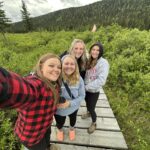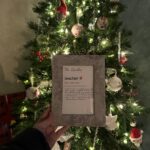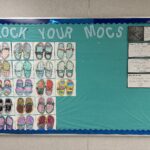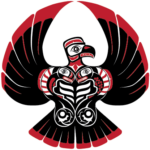**This page is subject to growth and change**
Throughout the program, I have learned the importance of including Indigenous ways of knowing and being in my teaching practice. But, in my journey, I have learned that there is a major difference between decolonizing and Indigenizing. This is what my inquiry is going to be focussing on.
So, what does it mean to decolonize compared to Indigenize? When we talk about decolonizing, it means removing colonial elements. In education, this could be: changing the way assessment has been done, focusing on collaboration and how learning can happen anywhere & anytime, continue learning and growing not only with your students but for your students.
When we look at Indigenizing our practice, we are talking about how can we authentically incorporate Indigenous ways of knowing and being in our classroom and how can we imbed these in our students as life skills and lessons that they can carry with them throughout their life.
New Entry: December 4th, 2023.
I spent the majority of the last 10 weeks trying to be as authentic as possible with embedding FPPL into my lessons. – That is exactly it – EMBEDDING. I think that there is a stigma around how to “fit” or “include” the FPPL’s into our lessons that it needs to be embedded and perfect. I was also given the impression that it needed to be seamless. In my time at Nukko Lake I had so many great experiences Ah-Ha moments, and discussions. One of which being on the question of – Why do we feel the need to make it EMBEDDED? Why can it not be overt?
Embedded: Fixed firmly and deeply into surrounding mass; implanted.
Overt: Done or shown openly; plainly or readily apparent, not secret or hidden.
Oxford Language
When we look at the definition and think about embedding FPPL into our lessons – for me at least I think of it as seamless, without direct acknowledgment, and like a puzzle without the pieces. Now, I want to acknowledge that I agree – this can be such an effective, enjoyable, and well-received way of including FPPL in our lesson plans and I think that it can create some authentic experiences for the students and the teacher. What I also learned is there is absolutely no reason our FPPL cannot be OVERT – in the last 10 weeks – some of the best conversations and work came from discussion/dialogue, observation and questions around FPPL, what it means, why it is important, what is the goal of it, etc. I also found that by making some of them overt, the students were able to take these lessons on and turn them into life-skills and lessons that I feel and hope they will carry with them for the rest of their academic lives – and even further.
When I look at this AH-HA moment I had above – I feel as though I always knew it but felt the need to follow what I was being shown about embedding the FPPL’s and that it would be easier for myself, the students, and my teachers to understand and be authentic. I think when I hit my practicum and was put to the test – I realized that that was not authentic for me. For others, maybe, and that is great! But for me, I could feel in my heart and brain that I was not as authentic as I could be. Which wasn’t helping me in my overall inquiry – Indigenizing vs Decolonizing.
When I read what I had first written about my inquiry above I see the words “How can we authentically incorporate Indigenous ways of knowing and being in our classroom and how can we imbed these in our students as life skills and lessons that they can carry with them throughout their life.” Authenticity, is what it comes down to. Before this moment – when I heard the phrase being authentic with the FPPL, I only thought of it as being authentic with the Indigenous portion of it. I.E. giving context, educating, and not just turning Indigenous content into an activity for fun and calling it Indigenizing. But, what I soon realized as I began teaching on my own in a shared space, is that phrase also means being authentic with yourself. I feel as though it is like dominos, if I start with being authentic to myself and the Indigenous practices – the rest will fall into place. The puzzle pieces will be given and I can start to build. Being authentic to yourself (in relation to the FPPL) is one of the best ways we can Indigenize and Decolonize our practice.
I look forward to adding more to this as I embark on the next part of my journey in January 2023. Thank you.




